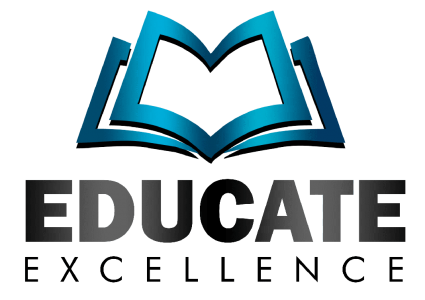The Role of Technology in Modern Education: Unlocking Its’ Potential
In today’s fast-paced world, technology has revolutionised every aspect of our lives, and education is no exception. From interactive learning tools to online tutoring, technology has opened up new avenues for students of all ages. At Educate Excellence, we think that these tools may be used to create individualised learning experiences. However, technology in education has benefits and pitfalls, just like any other effective tool. The benefits and drawbacks of technology in modern education, as well as its potential effects on children ages 7 to 16, will be addressed in this article.
The Pros of Technology in Education
1. Engaging and Interactive Learning
Learning may become more dynamic and interesting with the help of technology. Chalkboards and boring textbooks are things of the past. Students can interact with the content in a dynamic and enjoyable way with the use of educational apps, online games, and multimedia tools. These resources foster critical thinking, creativity, and problem-solving abilities—all of which are vital in the modern world.
2. Personalised Learning Experience
Technology enables this personalised approach, as each student learns at their own rate. Depending on the needs of each user, adaptive learning software can monitor progress, point out areas that want development, and offer extra resources. From primary school through high school, this individualised learning process aids pupils in developing a more thorough understanding of what they are learning.
3. Access to a Wealth of Information
There is a wealth of information available on the internet. Research papers, tutorials, and instructional films are just a few of the many resources available to students, allowing them to delve further into subjects outside of their course of study. This encourages independent thinking, inquisitiveness, and a stronger desire to study.
4. Flexible Learning through Online Tutoring
Learning is now possible from any location because to technology. Students can learn at home with the help of online tutoring, virtual classrooms, and e-learning platforms, particularly in situations when attending in-person classes isn’t always an option. Students who require additional support outside of regular school hours will find this especially beneficial.
5. Enhancing Collaboration and Communication
No matter how far away they are, students can collaborate in real time using digital tools like group chats, video conferencing, and collaborative documents. Students become better collaborators as a result of this, which fosters peer learning, cooperation, and communication skills.
The Cons of Technology in Education
1. Distractions and Overuse
Technology can be a great tool for learning, but it can also be a distraction. Instead of concentrating on their academics, students may be enticed to play games, watch videos, or browse social media. In order to prevent misuse, parents and teachers must help pupils use technology responsibly and set screen time limits.
2. Digital Divide: Unequal Access to Technology
A digital divide may arise when different students do not have equal access to technology. It could be difficult for families without the newest technology or high-speed internet to benefit from online learning options. Particularly for underprivileged pupils, this imbalance may result in disparities in educational outcomes.
3. Lack of Face-to-Face Interaction
Although virtual classrooms and online learning are practical, they might reduce in-person connections between teachers and students. When the majority of learning takes place in front of a screen, it can be difficult for kids to acquire social skills and form lasting relationships.
4. Technical Issues and Reliability
Not every technology is foolproof. Technical difficulties, such as software bugs or difficulty with internet connectivity, can interfere with learning. If students’ gadgets break down or they are unable to access learning platforms when they need to, they could miss important study time.
5. Health Concerns from Excessive Screen Time
Long-term use of screens can cause headaches, eye strain, and irregular sleep patterns, among other health problems. In order to prevent adverse physical impacts, students should make sure they take regular breaks and balance their use of technology with offline activities.
The Role of Technology in Different Stages of Education
Primary School (Ages 7-11): Sparking Curiosity and Engagement
For younger students, technology can spark curiosity and make foundational subjects like maths, English, and science more engaging. Interactive educational games, storytelling apps, and educational videos can capture their attention, making learning fun and memorable.
Secondary School (Ages 11-16): Independent Learning and Skill Development
Technology gives senior students the chance to expand their knowledge and hone their autonomous learning abilities. Students can keep organised and focused on their academic objectives by using subject-specific apps, digital textbooks, and online research tools to enhance traditional teaching techniques.
Balancing Technology and Traditional Methods
Even though technology offers numerous advantages, it’s important to strike a balance between traditional and digital teaching approaches. A child’s education still heavily relies on textbook reading, practical exercises, and in-person encounters with teachers. Combining the two methods guarantees that students acquire a wide range of experiences and aids in the development of well-rounded skills.
How Educate Excellence Can Help
At Educate Excellence, we understand the importance of technology in enhancing education, and we embrace it to create a learning environment that combines the best of both worlds.We provide children aged 7-16 access to professional tutors who employ interactive digital tools and resources to engage children in their learning journey through our online and in-person tutoring services, as well as an online portal with thousands of test prep questions and tools for 11+ to GCSE.
Whether a child needs additional help in maths, English, or another topic, our customised approach guarantees that their specific needs are satisfied.We also emphasise supporting offline learning activities, encouraging healthy study habits, and assisting students in striking a balance between screen time. Through an emphasis on individualised instruction and student involvement, Educate Excellence guarantees that technology will be an invaluable tool in your child’s academic success.
Ready to see how technology can enhance your child’s education? Get in touch with Educate Excellence today!


